Klamath Dam Removal: ‘It’s an Environmental Disaster.’
‘They purposefully made a disaster and are leaving taxpayers and the locals to clean up their mess’
This is the first article in a series about the Klamath Dam Removal project in Siskiyou County.
The removal of dams along the Klamath River in Siskiyou County, Northern California was sold as necessary to save salmon – specifically, “to restore habitat for endangered fish.”
The dams are part of the Klamath project, a series of seven dams built in the 1910’s and 1920’s in the Klamath Basin to bring electricity and agricultural water mitigation for Southern Oregon and Northern California, the Globe reported in 2020. However, in recent years, concerns over the dams’ effect on the wildlife and fishing industry have been raised, especially regarding claims of fish facing extinction because the dams.
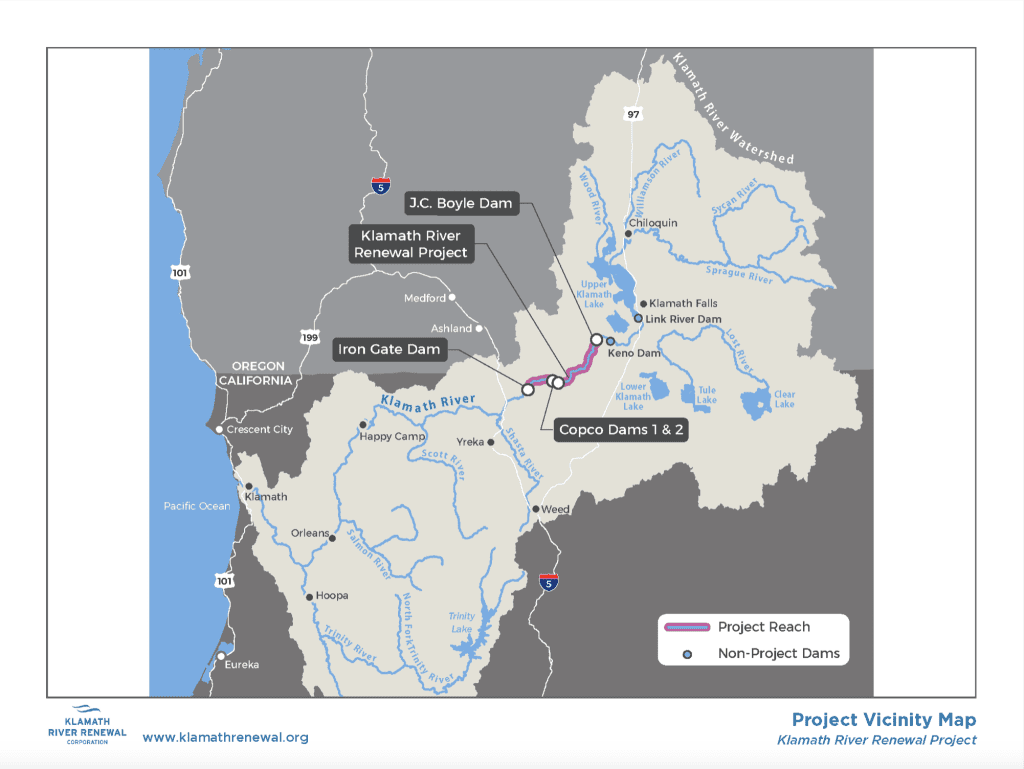
In 2018, plans were released to destroy the dam system. However, those plans halted in 2019 because of data errors and issues over who owns the dams. The Bureau of Reclamation swiftly issued a study on the dams’ effects through 2024, leading to California to again push for destruction of the dams.
In June 2020, the Federal Energy Regulatory Committee halted plans again, ruling that PacificCorp, an Oregon utility company owned by Warren Buffett’s Omaha-based Berkshire Hathaway, would have to transfer it’s hydroelectric license and co-licensee with the Klamath River Renewal Corp., as well as pay $250 million toward getting out of the demolition project to avoid any liabilities around the demolition.
Governor Newsom implored Buffett to back the demolition project to save the salmon populations that Native American tribes in the area rely on. “The river is sick, and the Klamath Basin tribes are suffering,” said Newsom in his letter. “The Klamath dam removals are a shining example of what we can accomplish when we act according to our values.”
Many tribes also issued a joint letter with Governor Newsom in support of the dams destruction.
2024
“Drawdown of three reservoirs on the Klamath River is well underway, and this step in the dam removal process has already dramatically altered the landscape along the river in Southern Oregon and far Northern California,” OPB.org reported. “Iron Gate, the lowest of the three remaining dams, was first breached on Jan. 9, followed by J.C. Boyle on Jan. 16. On Jan. 23, a concrete plug in the tunnel at the base of Copco 1 was blasted away. The reservoirs drained swiftly, leaving behind vast expanses of fissured mud the color and consistency of chocolate cake batter. The Klamath River is winding through the naked landscape, finding its new shape.”
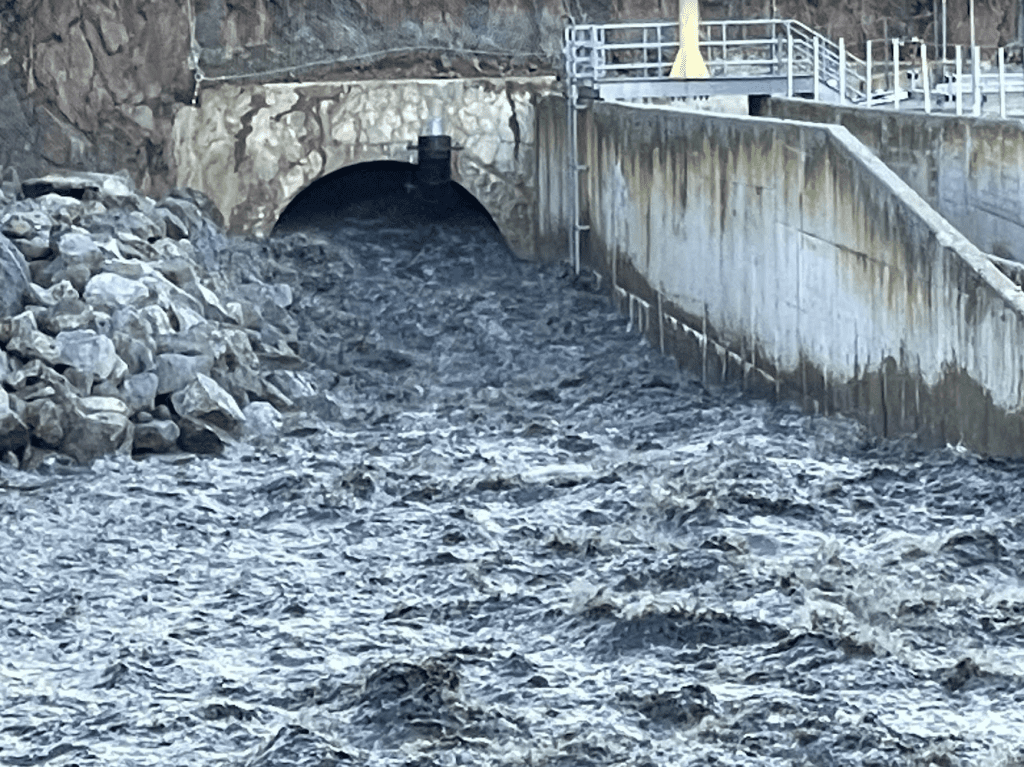
“Dam removal is expected to improve the health of the Klamath River, the route that Chinook salmon and endangered coho salmon take from the Pacific Ocean to their upstream spawning grounds, and from where the young fish return to the sea.”
It sounded good on paper – at least it did to the bureaucrats agitating for it.
But according to local officials, “it’s an environmental disaster.”
“I’ve been around natural disasters all of my life, and I’ve never seen anything like this,” Siskiyou County Supervisor Ray Haupt recently told the Globe. “The river is essentially dead, as is everything in it.”
Haupt was a District Ranger in the Klamath National Forest for 33 years, retired in 2010, and now owns a Forest and Natural Resources Consulting Business. He is a California Registered Professional Forester, a member of the California Professional Foresters Association, an Ag advisor for Etna High School and the College of the Siskiyous tech programs, and is an author of multiple Forest Management and Fire Policies for NAFSR, the National Association of Forest Services Retirees.
Haupt said the sediment plume extends 2 miles into the ocean. And he and local residents are witnessing a massive salmon extinction event.
Supervisor Haupt isn’t the only resident making these observations. OPB.org reported:
Many have seen dead fish stranded in the mud, and on Jan. 27, residents spotted a doe and yearling that had become hopelessly stuck trying to reach water. Volunteer firefighters from the Hornbrook Fire Protection District tried to rescue the mired animals but abandoned the mission as dusk fell. Soon after, an officer from California Department of Fish and Wildlife euthanized the deer.
“The mud was so thick; it was so far out there; they tried so hard,” said Chrissie Reynolds, a long-time resident of Copco Lake who drove to the scene to try to help. “But all that time, those animals were suffering.”
Supervisor Haupt also shared photos of Copco Lake, left almost dry with the dam removals.
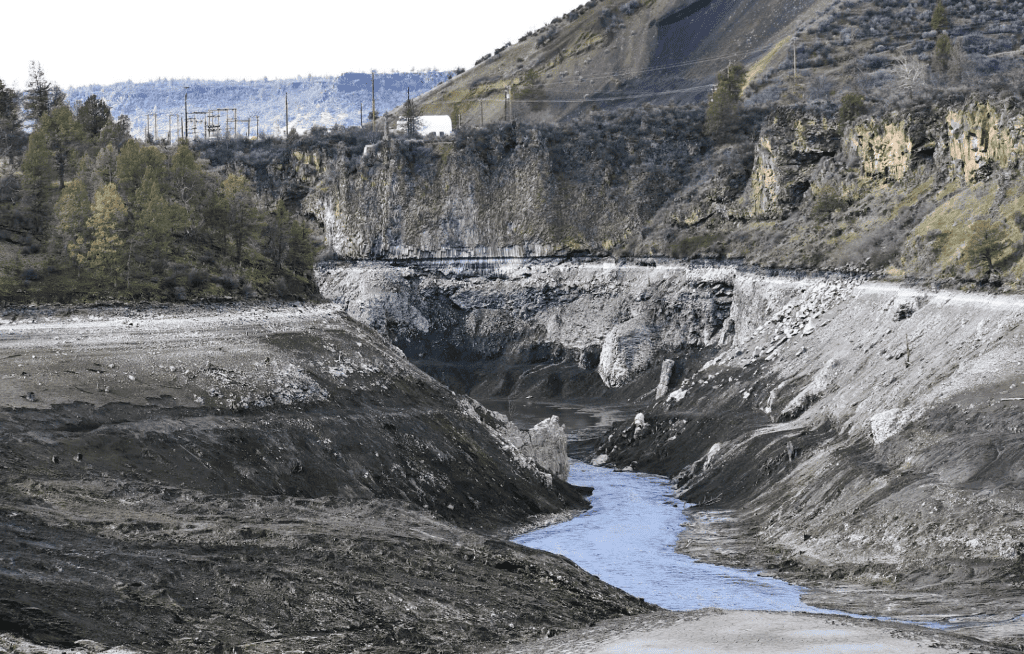
“The speed of drawdown did not allow crews to assist with ‘sediment evacuation’ as was planned,” OPB reported. “In that scenario crews would use jets of water and shovels to slough off chunks of mud from the banks as the water level dropped.”
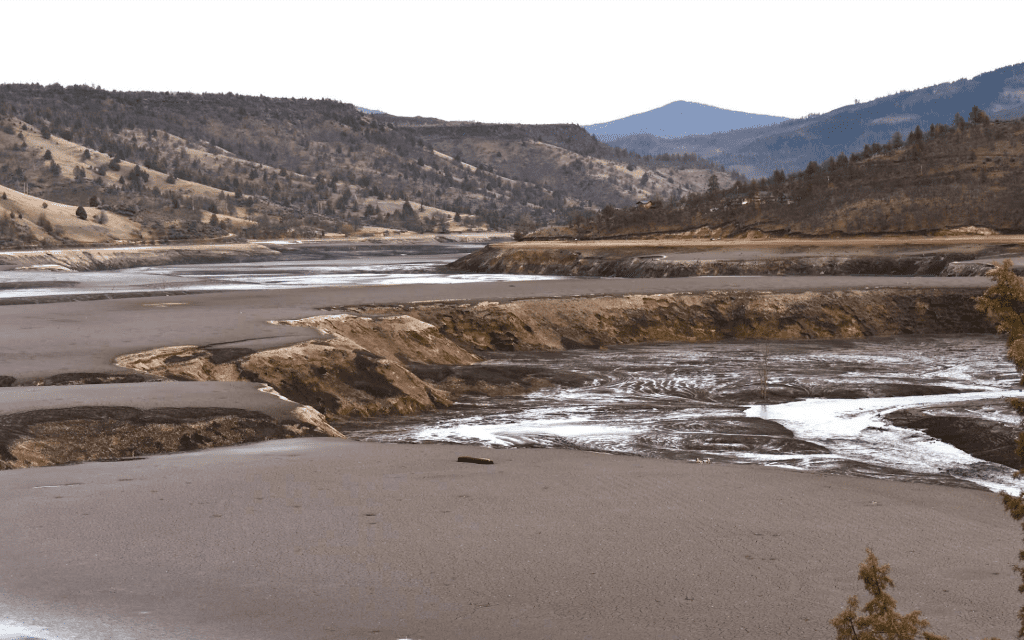
Haupt said what’s left of the water in Copco Lake is brown and thick with mud, and dead fish are everywhere.
Rep. Doug LaMalfa (CA-1) also expressed his disbelief in the results of the dam removal, in a January 30th Facebook post, summarizing the politics of the situation:
Environmentalists and the State of California are celebrating the world’s largest dam removal on the Upper Klamath River, while their work kills endangered species, destroys roads, threatens homes with bank collapse and is already seeing drinking water wells go dry. They purposefully made a disaster and are leaving taxpayers and the locals to clean up their mess.
Dam removal advocates refused to see the big picture, trusting a questionable Master’s thesis over the locals who knew better. Now, we see the results that are being ignored by the media and environmental groups – utter devastation of an ecosystem, and death. Dam removal advocates simply ignored the immense amount of sediment behind each dam, and how releasing it would impact water quality and river health. Now look, the water is black and thick with mud and toxic heavy metals covering every bit of gravel needed for spawning, deer are dying in the muck as is chokes out all life – and it absolutely reeks.
Shameless environmental groups cried that the removal of the dams is essential for fish health and would reverse salmon and steelhead population decline. Tell me, does this water look like a better habitat for the fish?
Newsom and the environmentalists were more interested in the trophy of the dams’ removal than the harm they caused.
The Yreka News posted a video described as a “massive fish kill:”
Video taken 02/06/2024 on the banks of Iron Gate lake, Hornbook, CA footage by William E. Simpson II. This is a screen shot:
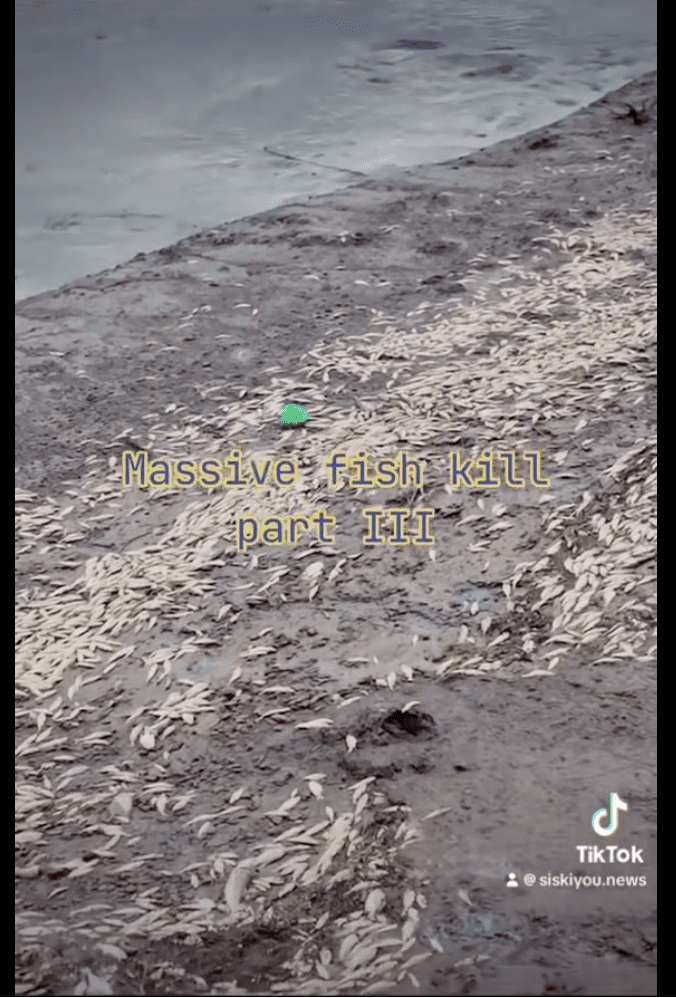
Experts say this is a “massive sediment poisoning” and will cause the die-off of numerous species.
Ironically, but without any humility, Gov. Gavin Newsom recently announced:
Following the Newsom Administration’s request for a Federal Fishery Disaster Declaration amid dramatic declines in key salmon stocks in 2023, the U.S. Department of Commerce announced $20.6 million to support impacted fishing communities in California, including commercial fishermen, recreational fishermen, subsistence users and charter businesses.
So after killing off hundreds of thousands of salmon and fish, Gov. Newsom is getting federal money to restore “impacted fisheries.”
Is this gross government incompetence or something more sinister?

